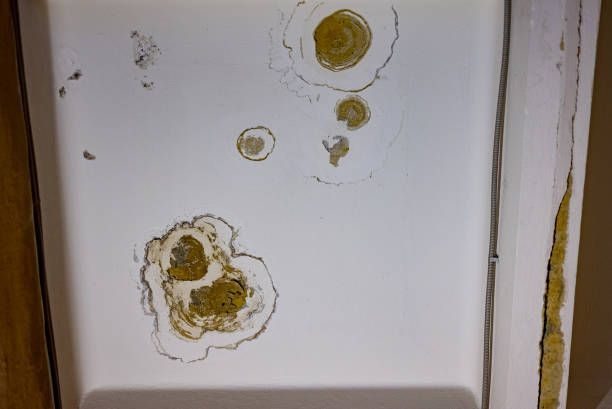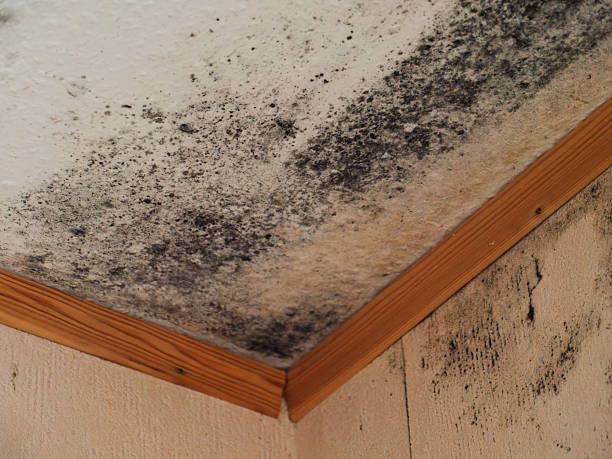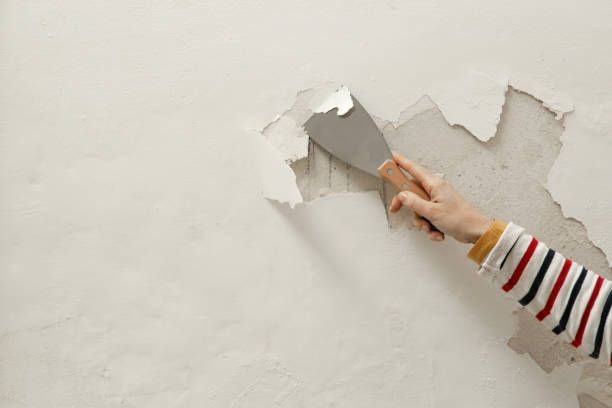Selling a House With Mold: What You Should Know

Selling real estate always presents challenges, but mold issues add another layer of complexity. Mold not only presents potential health risks to occupants but also has legal and financial implications that can impact a sale.
Recognizing the signs of mold, understanding disclosure laws, and considering remediation options are essential for sellers navigating this situation responsibly.
Key Highlights
- Selling a house with mold can be challenging, impacting its value and posing health risks.
- Identifying mold is key, with signs including visible growth, musty odors, water damage, and allergic reactions.
- Professional mold inspections provide a thorough assessment, involving visual examination, moisture mapping, and air/surface sampling.
- Legal disclosures about mold are crucial during a sale, varying by state but emphasizing transparency.
- Remediation, either professional or DIY for minor cases, is vital for a successful sale.
- Pricing should consider mold’s impact, potentially using repair credits or focusing on positive features.
Identifying Mold in Your Home

Recognizing the signs of mold is crucial when preparing a property for sale. While some signs are obvious, such as visible mold growth often appearing as black, green, or white patches, others are subtler. Musty odors, especially those lingering in specific areas, can indicate hidden mold growth. Water damage, a leading cause of mold, might manifest as stains, warped materials, or peeling paint.
Don’t overlook the possibility of allergic reactions. If you or your family experience persistent respiratory issues, skin irritation, or allergy-like symptoms that improve when away from home, mold could be a factor.
Common Signs of Mold in Houses
Visible mold growth, musty odors, water damage, and allergic reactions are common signs of mold in houses. Mold growth can compromise the structural integrity of a property and pose health risks, especially with black mold. When selling a house with mold, it’s crucial to address these issues through mold remediation to ensure a successful sale process and maintain property value.
Potential buyers are wary of mold problems, and addressing them promptly can prevent significant discounts on the asking price.
Health Risks Associated with Mold Exposure
Mold exposure poses varying health risks, particularly for individuals with compromised immune systems or pre-existing respiratory conditions. Common health issues associated with mold include allergic reactions, manifested as sneezing, coughing, skin rashes, and itchy eyes. More serious respiratory problems like asthma attacks or bronchitis can be triggered in susceptible individuals.
In cases of severe exposure or the presence of certain toxic molds like black mold, individuals might experience headaches, fatigue, and even neurological symptoms. It’s important to remember that mold’s impact on health varies depending on the type of mold, the extent of exposure, and individual sensitivity.
The Mold Inspection Process
A professional mold inspection offers a comprehensive assessment of the situation. These inspections typically involve a visual examination of the property for signs of mold growth, moisture mapping to identify areas prone to dampness, and air and surface sampling to determine the type and concentration of mold spores. This information helps determine the severity of the issue and guides remediation strategies.
When to Consider a Professional Mold Inspection
While a DIY inspection can uncover surface mold, certain situations call for a professional mold inspection. If you suspect hidden mold growth, especially after water damage incidents like leaks or flooding, an expert assessment is necessary.
Professional inspectors utilize specialized equipment and knowledge to detect mold in inaccessible areas, like behind walls or under floors.
If you’re experiencing unexplained health symptoms, especially respiratory issues or allergic reactions that seem linked to your home, a mold inspection can determine if mold is a contributing factor.
Additionally, if you’re planning to sell your home and are uncertain about potential mold issues, an inspection provides valuable documentation for potential buyers, facilitating transparency during the sale.
Understanding Mold Inspection Reports
Mold inspection reports serve as valuable documents, providing detailed information about the presence of mold in a property. These reports typically outline the areas where mold was discovered, the types of mold identified, and the estimated concentration levels. often referencing guidelines set by organizations like the Environmental Protection Agency (EPA) .
Furthermore, the reports often include recommendations for remediation strategies, highlighting the necessary steps to address the mold issue effectively. Understanding these reports is essential for both sellers and potential buyers as they offer a clear picture of the property’s condition and guide decisions related to remediation and future inhabitancy.
Legal Aspects of Selling a House with Mold
Navigating the legal landscape surrounding mold disclosure is crucial when selling a property. While specific regulations vary, a common theme emphasizes transparency and honesty. Failure to disclose known mold issues can have far-reaching consequences for sellers, potentially leading to legal disputes, financial repercussions, and damage to their reputation.
Disclosure Laws for Mold in the United States
Disclosure laws regarding mold vary from state to state, making it crucial for sellers to research and understand their specific obligations. In many states, sellers are legally required to disclose any known material defects, including mold, that could impact the property’s value or pose health risks to occupants.
While federal regulations don’t specifically mandate mold disclosure, legal actions can arise if sellers intentionally conceal or misrepresent information about a property’s condition. Sellers should consult with real estate professionals and legal experts to ensure compliance with local disclosure laws and navigate the intricacies of selling a house with known mold issues.
Potential Legal Risks of Non-Disclosure
The legal risks associated with non-disclosure of mold issues when selling a house can be substantial. If a potential buyer later discovers undisclosed mold problems, they may have grounds to pursue legal action against the seller for misrepresentation or fraud. Such lawsuits can result in significant financial burdens for the seller, including compensation for remediation costs, potential health expenses, and legal fees.
In some cases, sellers might also face punitive damages, which are intended to punish the seller for their actions and deter similar behavior in the future.
Furthermore, a seller’s reputation can be severely damaged if news of their non-disclosure becomes public, potentially hindering future real estate transactions.
Remediation Strategies Before Selling
When preparing a home with mold for sale, remediation is usually essential. Choosing the right approach depends on the severity of the mold growth and the desired outcome. While DIY solutions are possible for smaller, contained mold patches, larger infestations typically require professional intervention.
Choosing the Right Mold Remediation Company
Selecting a reputable and experienced mold remediation company is crucial for ensuring the effective and safe removal of mold from your property. Look for companies with proper licensing, certifications, and insurance coverage to protect yourself from liability.
Request multiple quotes from different companies to compare their services, experience levels, and the cost of mold remediation. A thorough mold remediation process involves identifying the moisture source, containing the affected area, removing contaminated materials, cleaning and disinfecting surfaces, and implementing preventative measures to discourage future mold growth.
DIY Versus Professional Mold Removal

Deciding between DIY mold removal versus hiring a professional depends on several factors. For small, surface mold on non-porous materials, DIY mold removal can be a cost-effective solution. However, safety should be paramount. Wear appropriate protective gear, including gloves, goggles, and a respirator mask, to minimize exposure to mold spores.
However, for larger infestations, mold on porous materials like drywall or insulation, or if the source of moisture is unclear, professional mold remediation is essential. Attempting DIY mold removal in these situations can be hazardous to your health and potentially worsen the problem. Professional remediators have the expertise, equipment, and safety protocols to handle these situations effectively.
Impact of Mold on Property Value and Saleability
The presence of mold can significantly impact a property’s value and overall saleability. Buyers often perceive houses with mold issues as risky investments, leading to hesitation and lower offers. Addressing mold transparently and professionally is key to mitigating these negative impacts.
How Mold Affects Home Valuations
Mold can negatively impact a home’s valuation in several ways. Buyers are often wary of properties with mold, recognizing the potential health risks and the costs associated with remediation. This wariness often translates to lower offers, as buyers factor in the perceived expense of addressing the issue.
Furthermore, extensive mold damage can lead appraisers to significantly discount the property value, viewing it as a major defect that affects the home’s structural integrity and habitability. This lower valuation can limit financing options for potential buyers, making the property less attractive to lenders and investors.
Negotiating Sale Price with Buyers Concerned About Mold
Negotiating the sale price with buyers concerned about mold requires transparency and a willingness to address their concerns. Providing documentation, such as a professional mold inspection report and remediation certificates, can reassure potential buyers that the issue has been appropriately resolved.
If the mold requires remediation, sellers can consider adjusting the asking price to reflect those costs or offering repair credits to buyers, giving them the flexibility to oversee the process themselves.
Additionally, highlighting the positive aspects of the property, such as its location, amenities, and recent upgrades can help offset the impact of mold concerns on the negotiation.
Conclusion
Selling a house with mold can be challenging, but understanding the key aspects can help navigate the process smoothly. Identifying mold signs early and addressing health risks is crucial. Legal implications like disclosure laws must be considered, and remediation strategies should be evaluated. Mold’s impact on property value emphasizes the importance of proper remediation.
By being transparent and proactive, sellers can mitigate risks and negotiate effectively. Remember, informed decisions lead to successful transactions. If you’re dealing with mold in your home sale, seek professional guidance to ensure a smooth process.
Give us a call anytime at 484-484-0971 or fill out this quick form to get started today!
Get A Fair Cash Offer On Your House

About the author
Mathew Pezon
Mathew Pezon is the founder and CEO of Pezon Properties, a cash home buying company located in Lehigh Valley, Pennsylvania. With several years of experience in the real estate industry, Mathew has become a specialist in helping homeowners sell their properties quickly and efficiently. He takes pride in providing a hassle-free, transparent, and fair home buying experience to his clients. Mathew is also an active member of his local community and is passionate about giving back. Through his company, he has contributed to various charities and causes.















